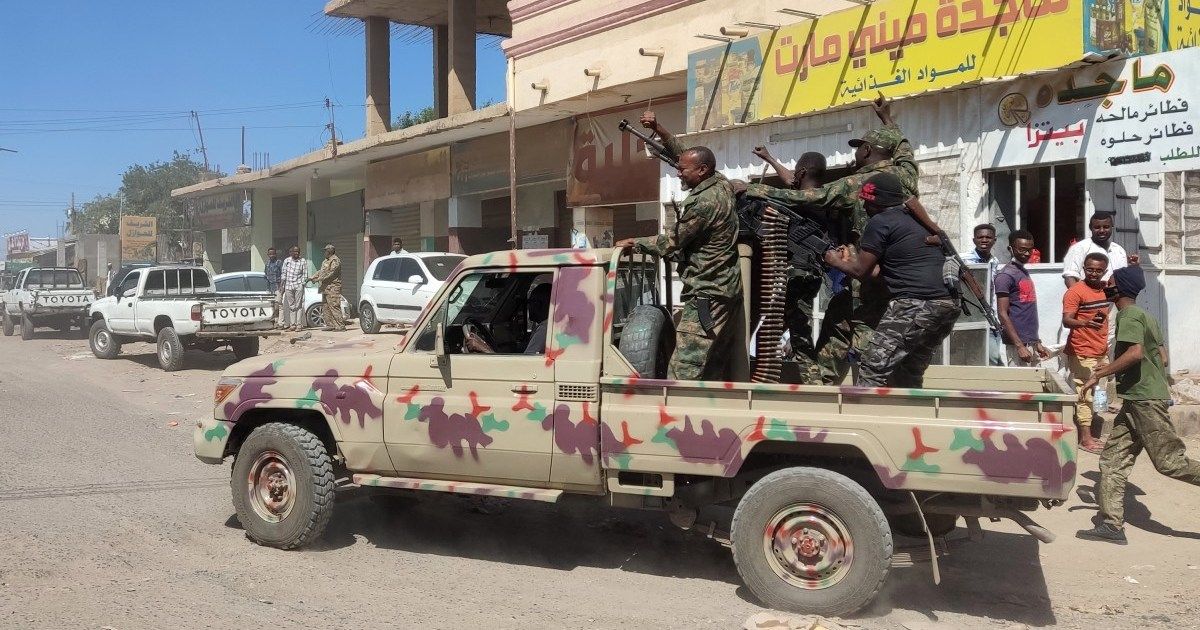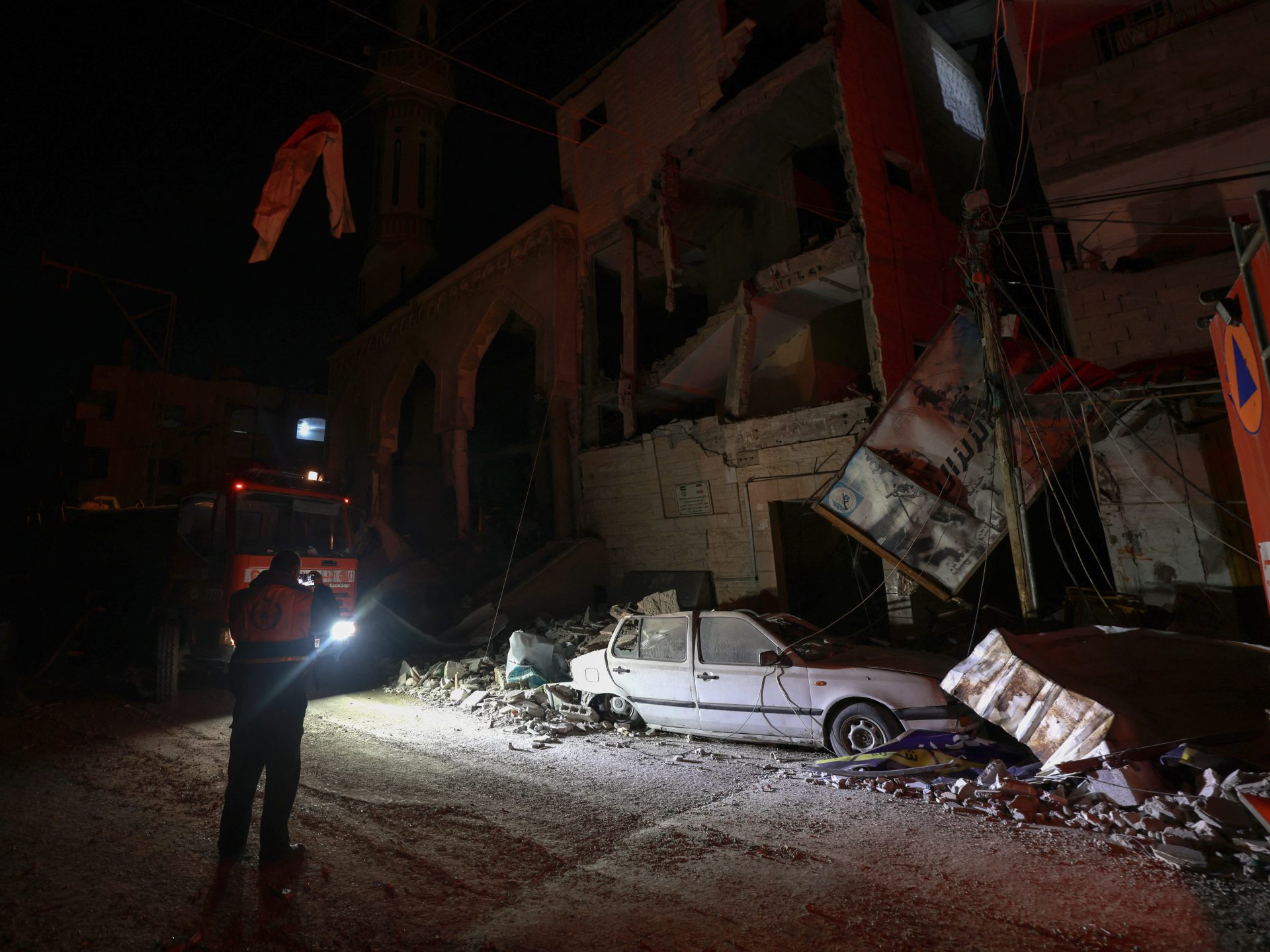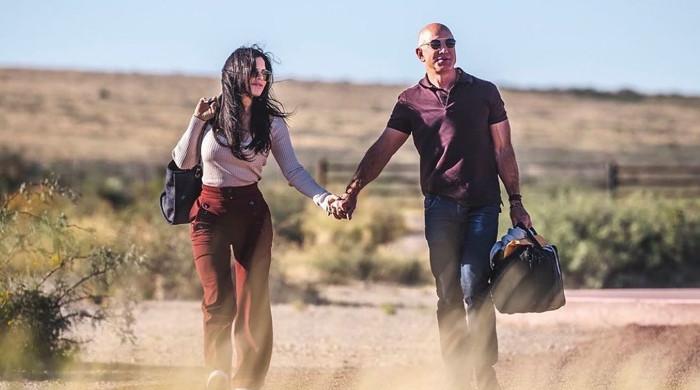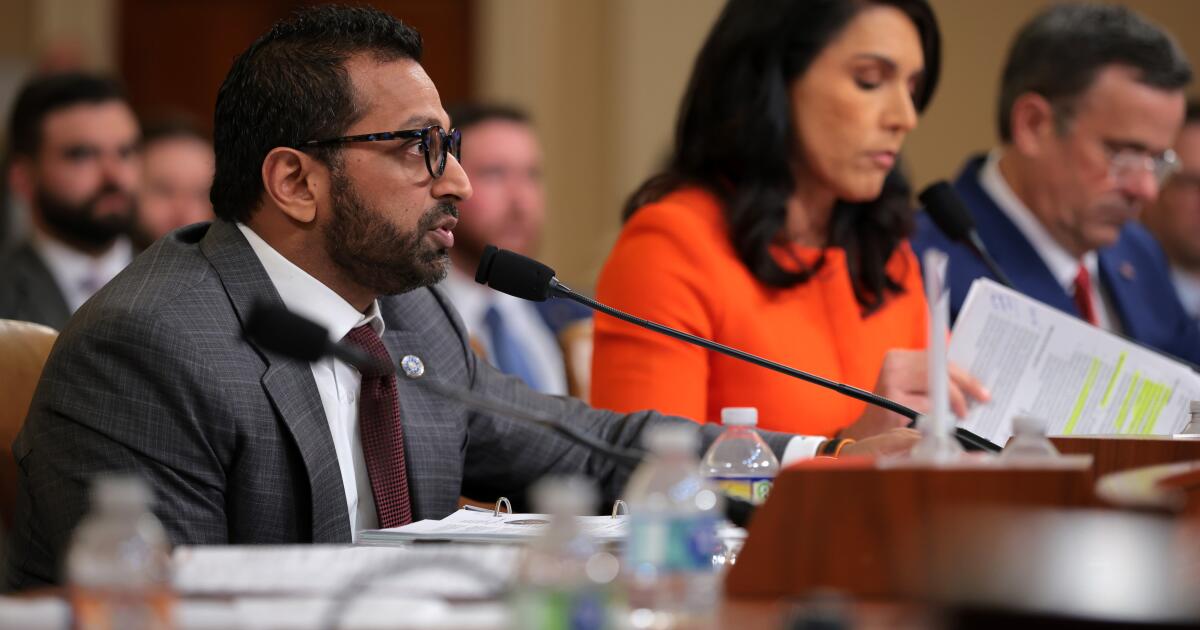In December, Osman Arbab*, 24, and his younger brother were on a bus outside Atbara, Sudan, when military intelligence stopped him and asked which of the passengers were from Darfur or Kordofan.
The two men are originally from Kordofan, although they had not lived there for years, and they were on the bus sheltered with all the other young people who were from both places.
Military intelligence officers told them all that they were accused of spying for the paramilitary group Rapid Support Forces (RSF) and took them to a facility in Atbara, northeastern Sudan.
For six days, Arbab and his brother were beaten with sticks to try to extract confessions from them. They would house them together so that each man could see and hear what was happening to his brother.
When the sticks didn't work, his interrogators on the seventh day connected them to electrical wires and began giving them electric shocks.
Arbab remembers seeing his brother scream, unable to do anything for him.
'We're not going to make it'
“My brother [has diabetes]and I remember thinking that we would not make it out of here,” Arbab told Al Jazeera.
“I was thinking, 'My brother is going to die. … They are going to kill us.'”
The military appears to be cracking down on people in regions where its rivals, the RSF, have some support, accusing them of being RSF “sleeper cells.”
People captured in these nationwide raids have been subjected to enforced disappearances and often torture, and no evidence is ever presented against them.
At least dozens have been extrajudicially executed, according to videos verified by Al Jazeera.
Survivors and local observers said security forces are mainly targeting people originating from Kordofan in southern Sudan or Darfur in the west, which are considered RSF strongholds. In some regions, civilians belonging to nomadic “Arab” tribes may be more vulnerable because the RSF largely recruits its members from their communities.
Arbab thought that he too was going to die, if not from torture, then from the terrible conditions of detention. He said his room was freezing, they gave him little water and he was forced to pay for food. After surviving 12 days, an officer requested a bribe for his release.
“I gave $50 for me and $50 for my brother, and they finally let us go the next morning,” Arbab told Al Jazeera.
Even army soldiers have been killed if anyone suspects they are loyal to the RSF. In Kordofan, most army battalions are made up of local “non-Arab” Nubians and local “Arabs”.
There is a widespread perception that “Arab” army officers secretly support the RSF, raising fears that the army could fracture along ethnic lines.
This month, the army reportedly executed 10 soldiers from nomadic “Arab” tribes in Dilling, South Kordofan, accusing them of collaborating with the RSF.
One of the soldiers was tied to a ladder and hung by his feet as the crowd cheered his execution, according to a video on social media verified by Al Jazeera. A photograph of what happened shows that the victim appeared to have been tortured to death. Local observers and activists described the murder as a “crucifixion.”
Ethnic tension
“In South Kordofan there have always been tensions based on ethnic and tribal lines, even in the army,” said Hafiz Mohamad, a Sudanese researcher from South Kordofan.
Mohamad told Al Jazeera that in Sudan's previous civil wars, it was Nuba soldiers and civilians who were accused of collaborating with mainly “non-Arab” rebel groups. Now things have changed and the “Arabs” are in the spotlight.
Ethnic tensions are also rising in northern and eastern Sudan.
On December 16, the army withdrew from Sudan's second largest city, Wad Madani, after the RSF captured it.
As a final act, the military executed dozens of civilians who belonged to “Arab” and “non-Arab” tribes in Darfur, according to a video shared by pro-army accounts that Al Jazeera verified.

Al Jazeera sent messages to army spokesman Nabil Abdullah asking about the summary executions and allegations of arbitrary detention and torture on ethnic grounds, but did not receive a response at the time of publication.
Mohamad Osman, Sudan researcher for Human Rights Watch (HRW), told Al Jazeera that the army's decision to arm civilians could lead to more ethnically motivated killings.
He said the military is stoking ethnic divisions to boost recruitment, giving the RSF a pretext to retaliate along ethnic lines as it has done in Darfur. On Friday, videos emerged on social media showing RSF fighters detaining and killing unarmed men in Gezira state, which they completely captured after seizing Wad Madani, its capital, last month.
Many of the victims were reportedly accused of cooperating with the military.
“Who is a civilian and who is a combatant is going to be blurred,” Osman told Al Jazeera. “And involving civilians as combatants… will help the RSF's discourse when they claim that they do not attack civilians but combatants.”
Counterproductive
In the early 2000s, thousands of people fled Darfur for northern and eastern states. At the time, “Arab” tribal militias – which were supported by the army and later reorganized as RSF – attacked civilians based on their ethnicity.
According to HRW, they carried out summary executions against “non-Arabs” and burned their villages, often assuming that they supported rebel groups. Two decades later, the army accuses the survivors of these attacks of supporting the RSF.
Muzan Mabrooka*, a young woman from a “non-Arab” tribe in Darfur, said she and her colleague were arrested and accused of being RSF spies in June.
They were detained in Gadarif, a state in eastern Sudan, and taken to a detention center where they were interrogated. His colleague was brutally beaten, Mabrooka said.

“When they finished investigating me they told me to leave. But I stated that my colleague was my husband and I was not going to leave him. He was afraid that they would hurt him a lot if he left,” Mabrooka told Al Jazeera.
Mabrooka's colleague was eventually released that day, but two of her friends were later kidnapped and tortured in Kassala, a state in eastern Sudan. She said they were also freed but are too afraid to talk about what happened to them. Many others remain missing, according to local observers.
Jehanne Henry, an expert on human rights in Sudan and non-resident fellow at the Middle East Institute, said the military is doing itself a disservice by targeting people based on their ethnicity.
“Military intelligence could be driving people to look for other allies – if not RSF, then perhaps groups that get along with RSF – which is very dangerous politically speaking for the Sudanese armed forces,” Henry said. “The military just made one mistake after another.”
Mabrooka added that civilians in Kordofan and Darfur are always assumed to be plotting against the army, regardless of the context. She criticized the military for claiming to protect civilians while subjecting many to grave violations.
“It doesn't matter who supported the RSF or not in the past,” Mabrooka told Al Jazeera. “All the tribes [from Darfur and Kordofan] “They are being attacked now.”
*Names have been changed to protect individuals.
Note to readers: The terms “Arab” and “non-Arab” are slippery labels in many regions of Sudan. Both communities are black and Muslim and have intermarried for centuries. The labels primarily denote communal ways of life. “Arabs” are traditionally herders and camel herders, while “non-Arabs” are sedentary farmers.












